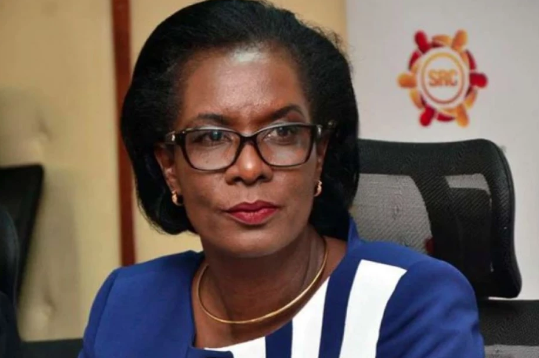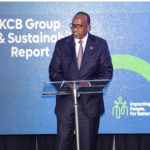The rising wage bill in the country has been linked to major sectors including education, health, and security. On the HOT 96 FM breakfast show, Lynn Mengich, Chairperson of the Salaries and Remuneration Commission (SRC), reported that the public service wage bill has been increasing recently. Projections indicate that it is expected to exceed the trillion-shilling threshold.
“The wage bill has been a problem in Kenya for a very long time. We may say blotted but it is always good to look at the context. Actually 50 percent of the wage bill is in the teaching sector. I am not sure then whether to call it a problem since we have an obligation to ensure that essential services are provided,” Mengich said.
Mengich, who is nearing end of her term at the commission raised concerns over the wage bill to revenue ratio; which has surpassed the recommended 35 per cent limit stipulated in the Public Finance Management Act.
“This is still a major problem as the Public Finance Act states that the wage bill should not be more than 35 percent of the revenue,” she told show hosts Jeff Koinange and Patrick Igunza.
Mengich indicated that the wage bill-to-revenue ratio might decrease further. She defended the recent decision by the SRC to freeze salary structures, stating it has been beneficial.
“When we assumed responsibility, the wage bill was 51.5% of total revenue. It decreased to 46.6% in 2022/2023, with projections for the last financial year at 39.2%,” she explained.
In March 2024, the SRC reported that the country is overspending, with the wage bill consuming more revenue than the allowable maximum of 35%. Mengich cautioned that the government’s increasing hiring practices could further escalate the wage bill, complicating efforts to allocate resources for services and development.
Meanwhile, the Union of Kenya Civil Servants has challenged the SRC’s decision to freeze salary increments in court. The union contends that the freeze infringes on their members’ rights to a pay raise and is seeking a temporary court order to suspend the SRC’s decision pending the resolution of their application.
“Our members and low and middle-level employees and hence any salary cut or delay in any manner is likely to financially affect them greatly in regard to their daily survival,” the Union argued.
On Tuesday, the government took steps to prevent a strike by offering civil servants a salary increase of between Ksh.1,000 and Ksh.3,000, retroactive to July 1st.
In a circular signed by Public Service Principal Secretary Amos Gathecha, it was announced that civil servants would also receive an increased house allowance.
Under the new salary structure, which represents the second phase of the Collective Bargaining Agreement (CBA), the lowest-paid civil servants, currently earning Ksh.16,910, will see their pay rise to Ksh.18,250.



